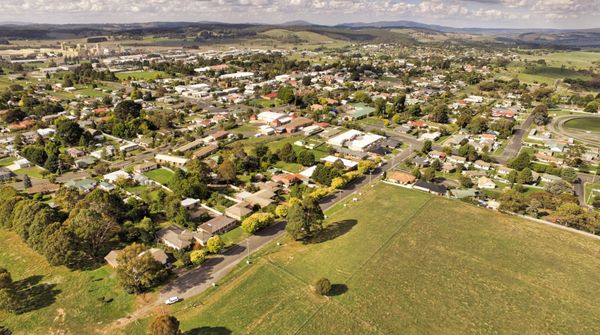
Set on a plateau 1100 metres above sea level and located a three-hour drive from Sydney and Canberra, Oberon is the highest town in the Greater Blue Mountains region. This elevation means Oberon has 4 distinct seasons with snow being fairly common in the winter months with mild to warm conditions in summer.
A small rural community of around 3700, Oberon is one of the first genuine rural communities west of the Blue Mountains and is still dependent on its rural industries, including prime lambs and beef cattle, with Brussel sprouts, broccoli, potatoes and peas being major horticultural crops. The timber industry is very active in the area with timber processing plants along with both government and private pine plantations in the surrounding farmland.
Oberon shire encompasses part of the Gundungurra lands, and part of Wiradjuri country. The lands around Oberon became accessible following the building of Cox’s Road, across the Blue Mountains to Bathurst, in 1813. The first white town was permanently settled in 1839, originally named Bullock Flat, until it was renamed to Oberon in 1863. Gold was discovered on the Fish River in 1823, leading to a population boost in the area.
Oberon features spectacular countryside with everything from natural bushland, rolling farmlands and pine forests. Explore National parks, State forests, Lake Oberon and the world renowned Jenolan Caves, with bushwalking, camping and adventure right at your doorstep. Explore local gardens including the famous Mayfield Garden or visit yesteryear with local museums.
Oberon township is a great place to shop and has amazing local produce and a family-friendly atmosphere. With cafes, restaurants and wineries in the area, Oberon delivers on the culinary front.
Accommodation in Oberon and around its circle of villages offer bed and breakfasts, farmstays, motels, hotels, caravans and camping.
